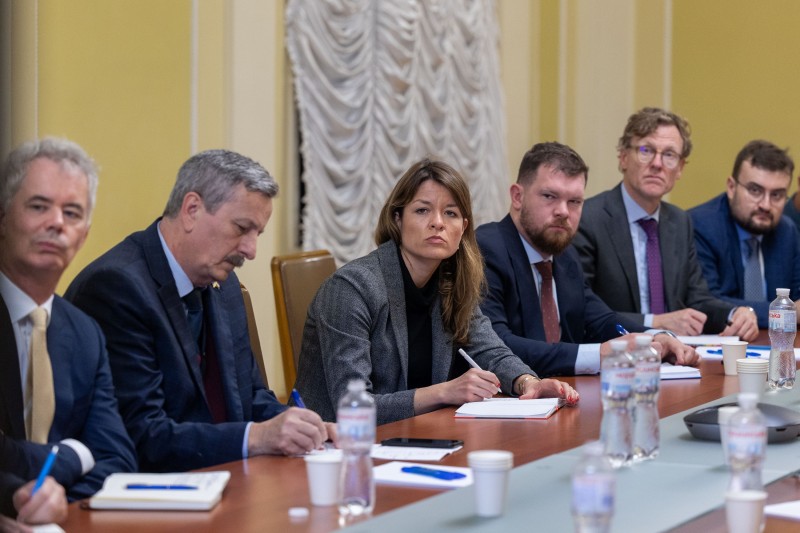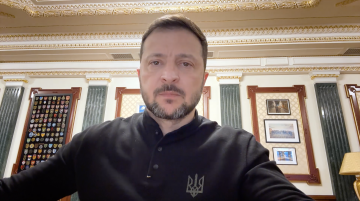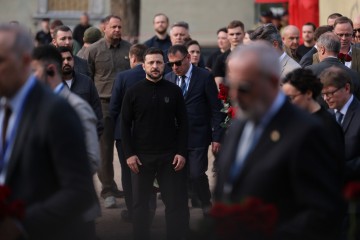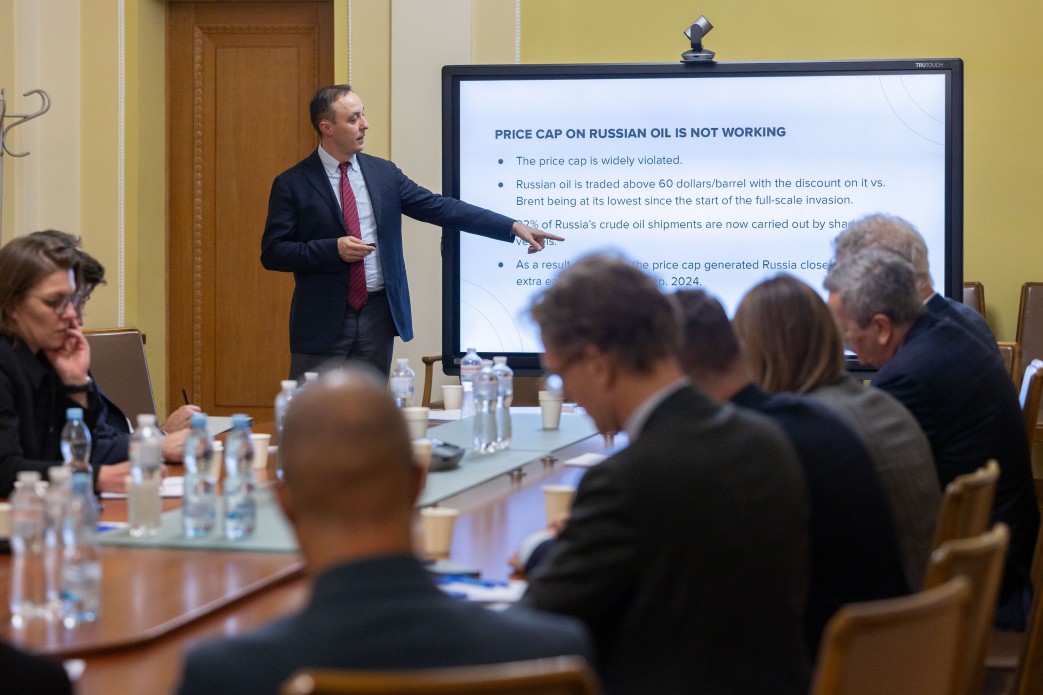Advisor and Presidential Commissioner for Sanctions Policy Vladyslav Vlasiuk held a briefing for heads of diplomatic missions and representatives of EU embassies in Ukraine on an analysis of the impact of sanctions on the Russian Federation and strategies to strengthen the restrictions.
“Russia is able to sustain its military aggression against Ukraine thanks to high export revenues. Strengthening the sanctions regime is crucial to deprive the Russian Federation of funds to finance the war,” he stressed.

The Advisor and Commissioner pointed out that in the meantime, the Russian economy, overburdened by the costs of the war, is becoming increasingly vulnerable. According to him, this situation should be leveraged to significantly increase sanctions pressure.
In particular, it is necessary to reduce Russia's energy revenues, since the price cap on Russian oil is not working effectively. Currently, 92% of crude oil supplies from the Russian Federation are transported by the shadow fleet. The main challenge is the slow identification of the relevant vessels and the enforcement of sanctions against them.
Vladyslav Vlasiuk also reminded that this month there was a sharp decline in production at the Arctic LNG 2 project, which is crucial to the aggressor's plans to expand liquefied natural gas exports and develop the Northern Sea Route.
At the same time, the EU remains the largest buyer of Russian LNG. Therefore, it is important that the EU extends its sanctions to those vessels that Russia is using to create a shadow fleet for fuel transportation, and in the short term, completely bans the export of Russian liquefied natural gas.
The EU is also still heavily reliant on Russian nuclear fuel.
Furthermore, it is essential to ban the import of Russian metals, as this is another important source of income for the Russian Federation.

Despite the complete ban on exports of dual-use items and technologies to Russia, the aggressor state still manages to acquire them for the needs of its military-industrial complex through intricate supply chains involving third countries. A ban on the re-export of minerals to Russia and comprehensive sanctions against all companies involved in supplying critical components, equipment, and resources to Russia should be introduced.
Due to financial sanctions, Russia has increasingly relied on cryptocurrency payment methods. Therefore, the EU should join the U.S. sanctions already imposed on certain Russian fintech companies and cooperate in expanding restrictions against the relevant sector of the Russian Federation. Additionally, European financial institutions remaining in the Russian market should exit as soon as possible.
“The EU should consider complementing large sanctions packages with regular smaller packages targeting organizations, individuals, etc. In particular, by using the list of the 100 largest individuals and entities that pose a threat to international security due to their involvement in Russian aggression against our country,” Vladyslav Vlasiuk noted.




